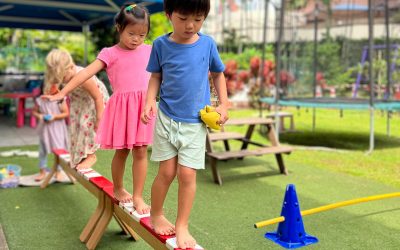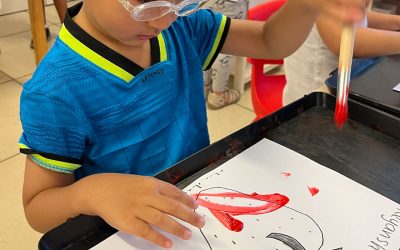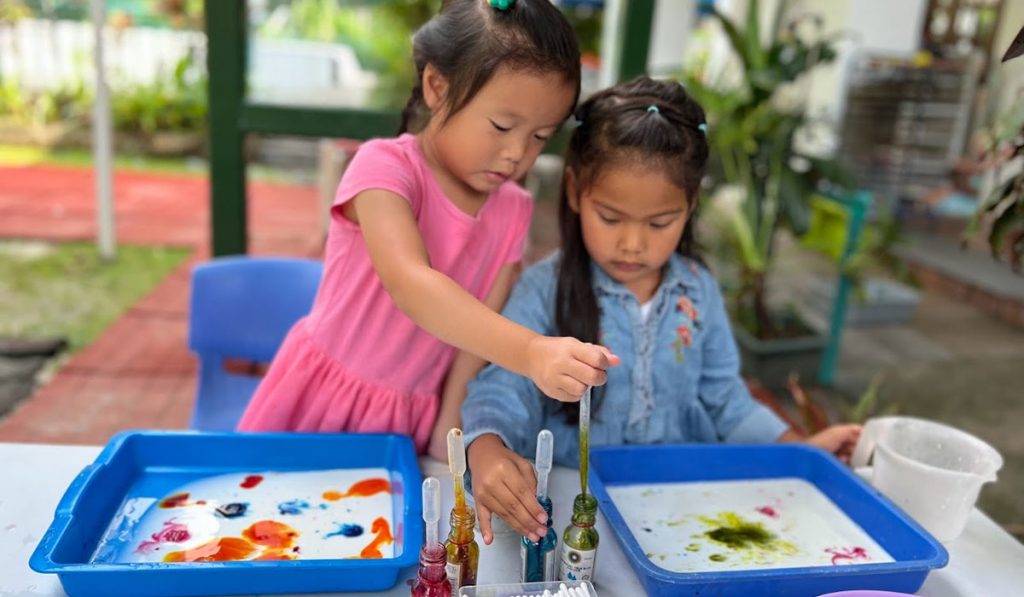
Introduction
Looking to guide your little one through their preschool years in Singapore? Consider the importance of positive parenting.
Positive parenting sets the foundation for your child’s emotional, social, and educational journey, giving them the confidence and skills to conquer their world. Every small step you take is a huge leap for your child. This approach isn’t just about nurturing your child’s growth; it’s about building a strong, trusting bond between you and them.
In this article, you will learn all about positive parenting, and how you can make your child’s early years enriching and fulfilling for both of you.
What is Positive Parenting?
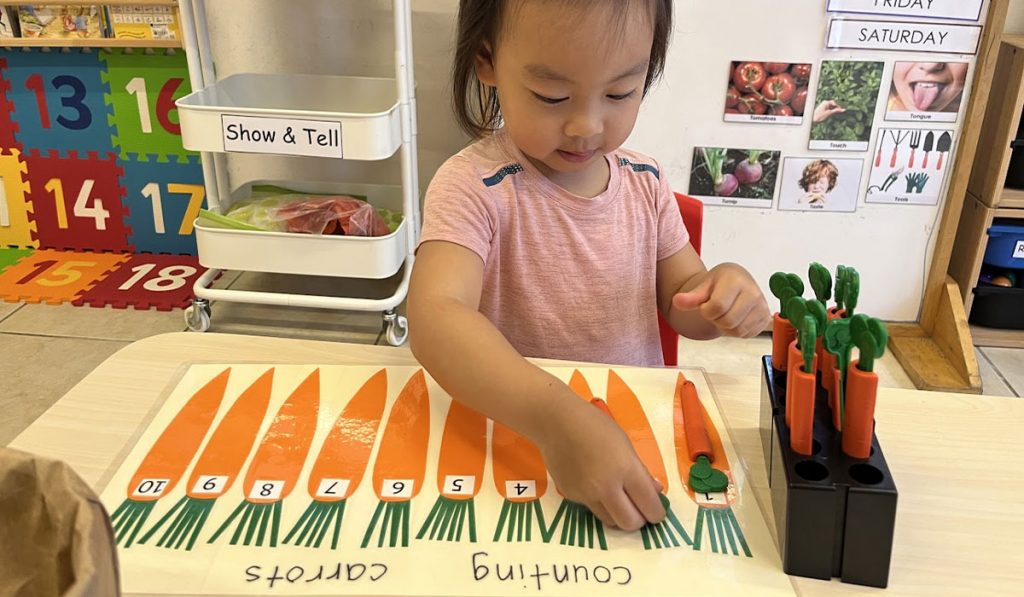

At its core, positive parenting is all about fostering a relationship with your child anchored on mutual respect, understanding, and open communication. It’s a parenting strategy that emphasises the positive points of behaviour, aiming to build our children’s self-esteem and emotional resilience from an early age.
Positive Parenting Principles for Preschoolers
For preschool-aged children, positive parenting revolves around several key principles:
#1 Demonstrate Empathy and Understanding: See the world through your child’s eyes and respond with empathy. Acknowledge their feelings and experiences as valid and essential — do not just brush them away.
#2 Practise Clear Communication: Engage in open and honest dialogue with your child. Make your expectations clear and help them understand the reasons behind them.
#3 Set Consistent Boundaries: Establish and maintain clear boundaries for what they can and cannot do. Children thrive on routines that are essential for their sense of security. These boundaries should be set with kindness and understanding, not as punishment.
#4 Encourage and Support: Wherever possible, celebrate their achievements, be they big or small. Likewise, offer support whenever they face challenges and are unable to solve a problem themselves. This builds their confidence and encourages them to try new things.
#5 Develop Self-Worth and Confidence: Parents can help their children develop a strong sense of self-worth by engaging in empathic communication while showing unconditional support. This frees them to express their emotions healthily as they confidently navigate social situations.
Positive Parenting isn’t Permissive Parenting
It’s important to distinguish positive parenting from permissive parenting. While positive parenting involves guidance and support, it also requires discipline and boundaries. The difference lies in how these boundaries are communicated and enforced.
Positive parenting is about setting limits with love and respect, rather than fear or punishment. This balanced approach ensures that children understand the importance of rules and learn to respect them, without feeling diminished or unsupported.
Essential Positive Parenting Tips
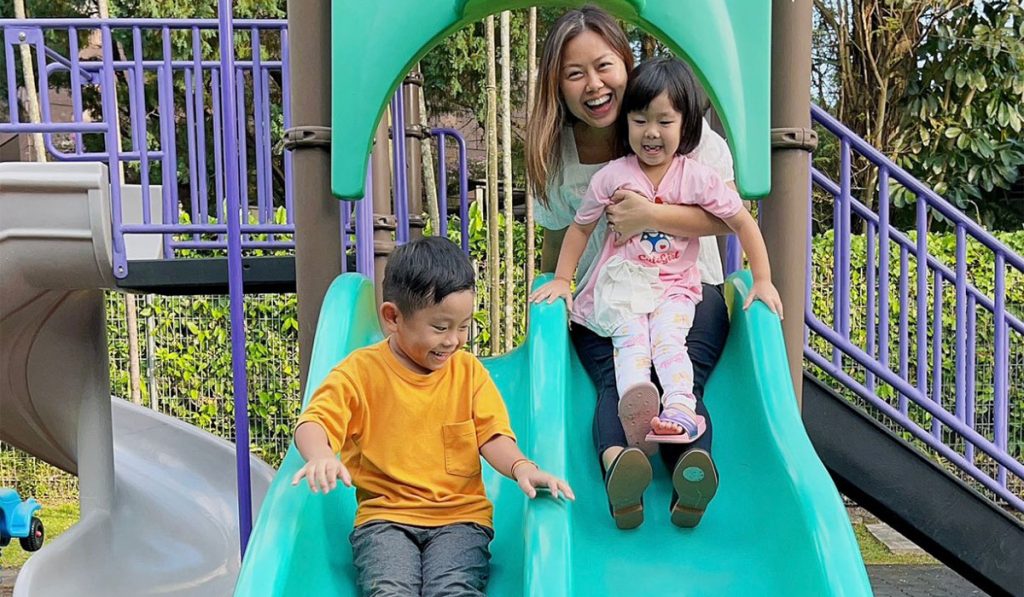
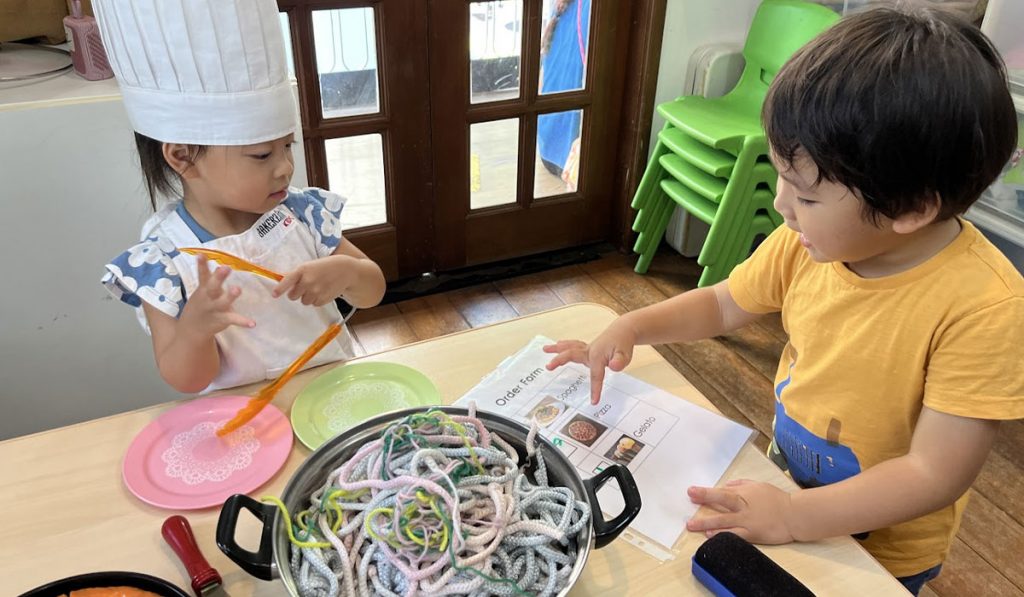

How do you apply positive parenting principles at home? Here are some practical ways to do so.
#1 Spend Focused Time Together
Start by dedicating quality time each day to connect with your child, free from distractions like mobile phones or televisions. Engage in activities they love, whether it’s reading together (an activity with lots of benefits for brain development and bonding), drawing, or playing outside.
Do also have meals together as a family — this has been shown to improve your children’s well-being, bonding and even grades in school! A simple “tell me about your drawing” activity can also spark significant emotional connections.
#2 Boost Independence with Small Tasks
Nurturing independence in young children builds their self-esteem and confidence.
Begin with small tasks, like choosing clothes or packing school bags. These choices empower them, making them feel capable and trusted. Simply letting your child accompany you for grocery shopping can help them grow in many ways!
Celebrate their successes, no matter how small, and provide gentle guidance when they face challenges. This approach teaches them resilience, encouraging them to try new things confidently.
#3 Set Clear and Healthy Boundaries
Clear, consistent rules are essential for a child’s sense of safety and security. However, positive discipline should be treated as guidance, not punishment.
Explain the reasons behind rules in a way your child can understand, and involve them in setting some household guidelines. This makes them feel respected and part of the decision-making process.
For example, deciding together on bedtime routines can turn a nightly battle into a cooperative effort. Likewise, agree on screen time (if any) and mealtimes.
#4 Promote Social Skills by Modelling Positive Behaviours
Encouraging your child to interact respectfully with others lays the foundation for lifelong social skills—model positive interactions by treating others with kindness and respect yourself.
Role-playing games can be a fun way to teach empathy and sharing. For instance, taking turns playing different characters can help them understand various perspectives. Praising your child for positive social interactions reinforces these behaviours.
#5 Support Cognitive and Physical Development through Games
Stimulating your child’s learning and encouraging active play are crucial for their development.
Incorporate educational games that challenge their thinking and problem-solving skills. Activities like puzzles, simple board games, or counting games during everyday tasks can be fun and educational. Board games not only foster critical social skills, cognitive functions and executive skills — they provide a beneficial break from screen time, and may improve attention in children with ADHD.
For physical development, involve your child in active play, like dancing, jumping, or playing catch. These activities improve physical health and boost their cognitive abilities, as they require coordination, balance, and spatial awareness.
How Kindergartens Reinforce Positive Parenting
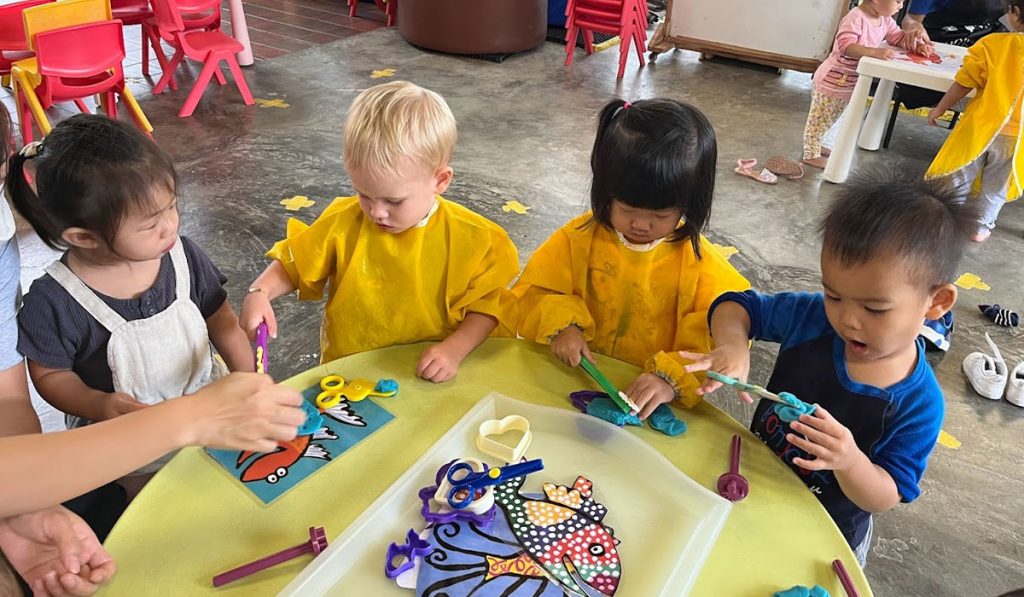
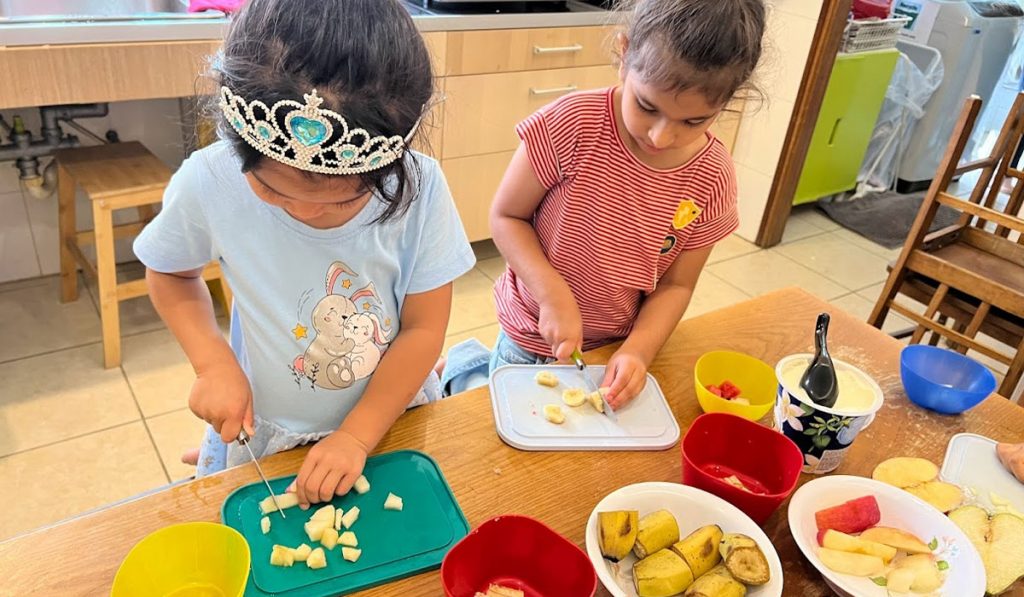
In Singapore, kindergartens are more than just educational institutions; they’re crucial allies in the journey of positive parenting. By reinforcing positive behaviours and values, these nurturing environments complement your home efforts.
We’ve compiled a checklist of things to look out for to help you choose the right kindergarten.
#1 Partner for Positive Behaviours
Kindergartens should serve as an extension of your home environment, reinforcing the positive behaviours you’re instilling in your child. For example, if you encourage sharing at home, your child’s kindergarten will support this through group activities that require taking turns and cooperating with peers.
#2 Structured Growth for Social and Emotional Development
Look for a structured environment where your child can thrive socially and emotionally. Children learn to understand and manage their emotions through structured play and guided activities, fostering resilience and emotional intelligence from a young age.
#3 Provide Parental Resources and Support
Are there resources and workshops for parents on positive parenting practices? These can range from articles and newsletters with tips on reinforcing positive behaviour at home to seminars led by child development experts.
#4 Encourage Parental Involvement
Active parental involvement should be encouraged, whether it’s through participation in special school days, volunteer opportunities, or parent-teacher meetings. This involvement helps you stay connected with your child’s educational journey.
#5 Offer a Community of Support
Check that your kindergarten helps to build a community among parents, offering a platform for shared learning and support. This community can be a valuable resource for exchanging parenting tips, experiences, and encouragement.
#6 Model Positive Discipline
Kindergarten educators and staff should showcase positive discipline strategies through example and guidance. Instead of punitive measures, they should use logical and related consequences to the behaviour, teaching children about accountability in a supportive way.
#7 Build Children’s Communication Skills
Interaction with peers in kindergarten boosts your child’s communication skills. Group projects and daily interactions allow your child to express themselves, listen to others, and work together towards common goals.
#8 Foster Empathy and Compassion
It is important for kindergartens to nurture empathy and compassion among their kids. Through activities that encourage children to consider others’ feelings and perspectives, your child learns the importance of empathy in their social interactions.
#9 Build Confidence and Independence
Have a peek at their classroom activities to see if they are designed to promote confidence and independence. From choosing their own activities to leading small group projects, kids should be encouraged to take initiative, bolstering their self-esteem and decision-making skills.
#10 Create Safe Space for Expression
A supportive kindergarten environment leaves no child behind. Every child should feel safe to express their thoughts, feelings, and creativity. This open atmosphere is crucial for emotional well-being and encourages children to share their inner world with others.
#11 Promote Love for Learning
Above all, kindergartens play a fundamental role in instilling a love for learning. Children are introduced to the joy of discovery and exploration through engaging and fun activities, laying the groundwork for lifelong learning and curiosity.
Conclusion
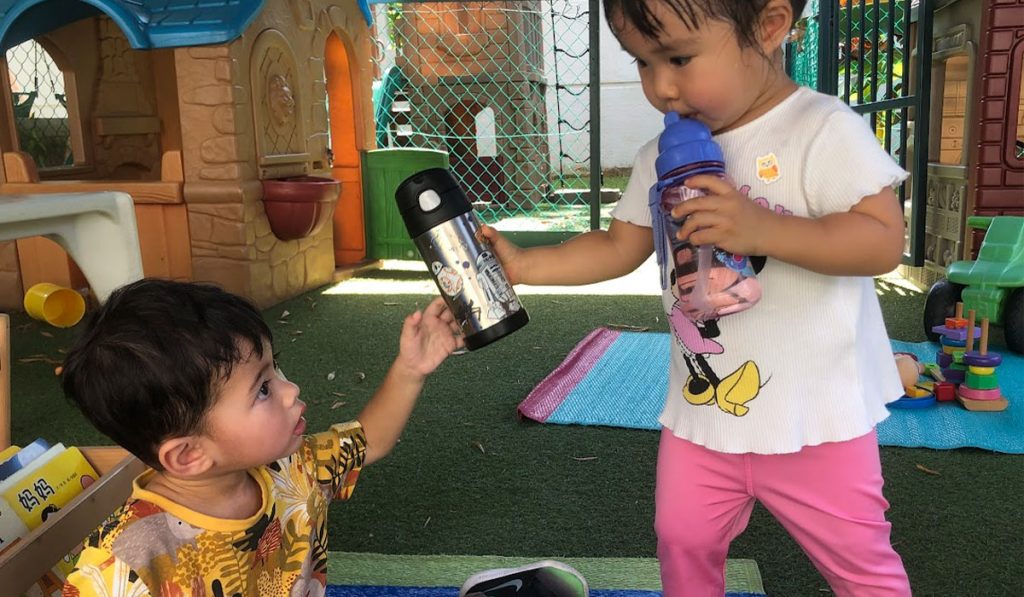
Positive parenting is crucial for the holistic development of young children. It lays the groundwork for their emotional, social, and educational growth, and equips them with the confidence and skills to navigate their world. This sets them up for success in school and later in life.
Nestled at 31 Balmoral Road, Heartfield Kindergarten aligns perfectly with positive parenting principles. We welcome children from 18 months to six years in a safe and supportive environment where they can flourish and grow. With a dedicated team and a low student-to-teacher ratio, Heartfield promotes individual growth through a multi-sensorial curriculum. her ratio, Heartfield promotes individual growth through a multi-sensorial curriculum.
Located at 31 Balmoral Road, Heartfield is an ideal choice for parents seeking a supportive community for their child’s early years. To learn more, get in touch with us at tel: +65 6835 2354, email: info@HeartfieldKindergarten.com or visit our contact page for details.
